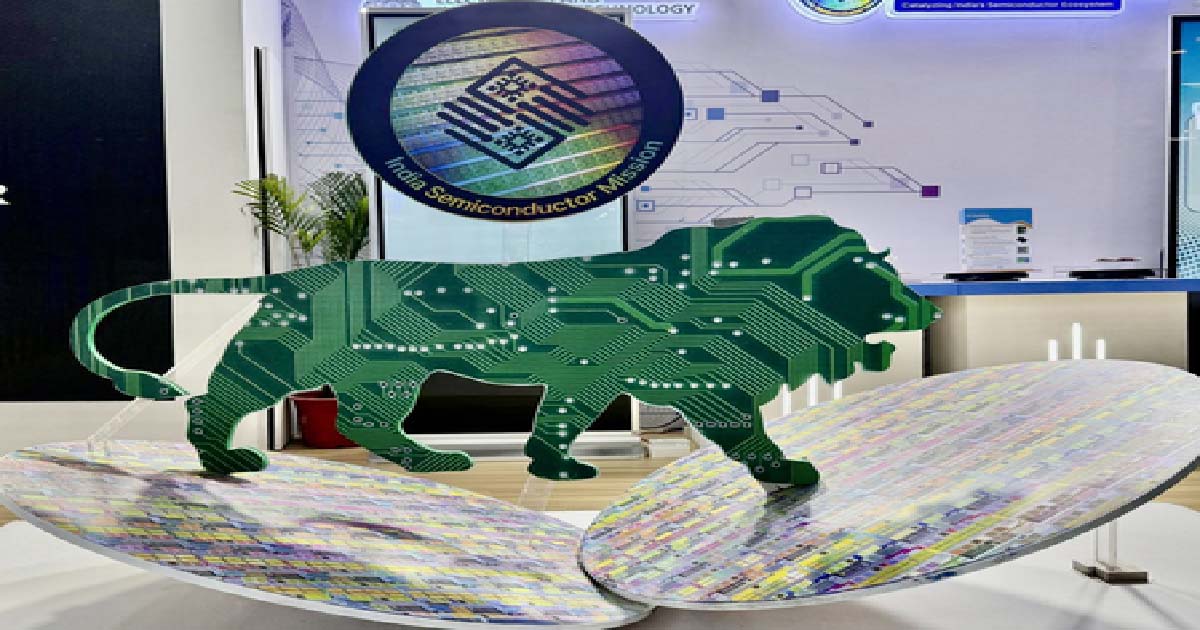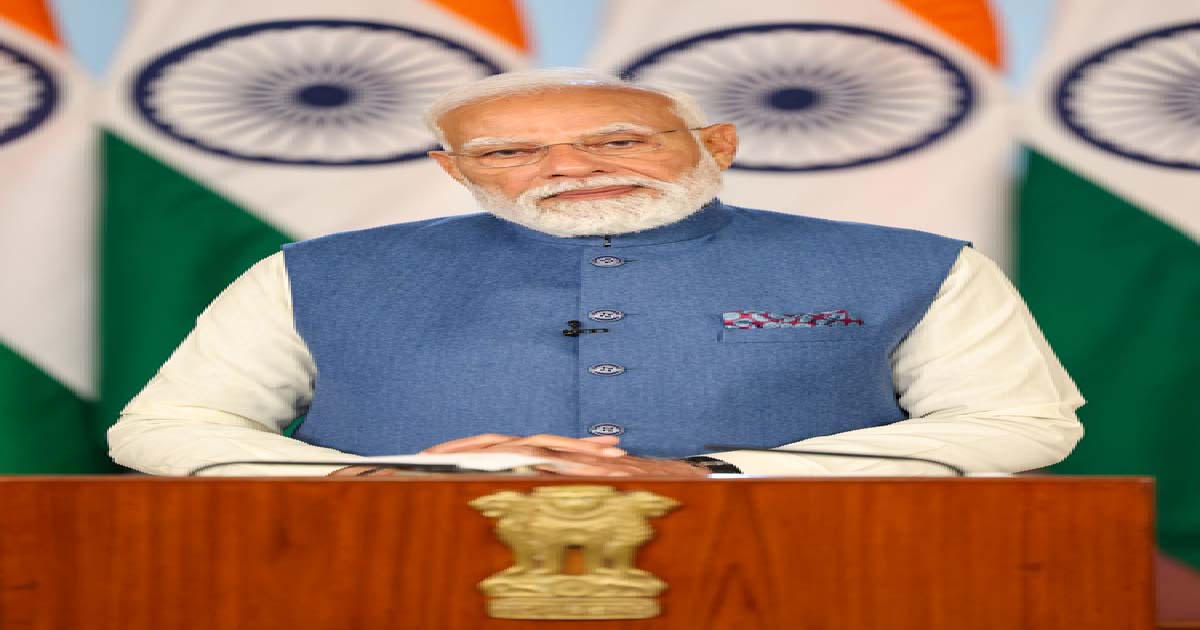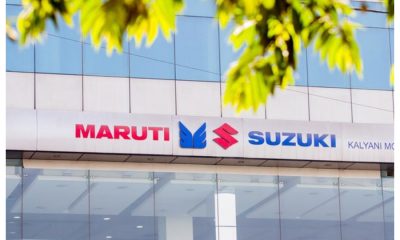Business
Omicron disruption minimal, production gaining steam: Maruti Suzuki
The Covid-19 pandemic’s third wave has had a minimal impact on production as well as demand, said automobile major Maruti Suzuki.
Notably, the third wave’s disruption has been less severe than previous phases of the pandemic.
In a conversation with IANS, Maruti Suzuki India’s Senior Executive Director, Sales and Marketing, Shashank Srivastava said the company as well as the industry has coped well with the third wave.
He pointed out that it took the company 90 days to reach from 0-to-6,000 units production per day during the first wave.
“In the second wave, it took us only 18 days to reach this mark. We were able to recover in a short time as we had a good learning experience from the first wave which was implemented in the second wave,” Srivastava said.
“In the third wave, there has hardly been any disruption with respect to bookings, demand or even the supply chain.”
Last month, the auto major sold a total of 154,379 units which was lower than the off-take of 160,752 units reported in January 2021, on account of lower production.
Furthermore, he cited that an easing in semiconductor supply issue.
“You can see next (fiscal) year, the situation becomes much better than what we saw in the second half of this year. However, in terms of production, we will probably not be at 100 per cent production level even in this quarter.”
In January 2022, the company’s total production of passenger as well as commercial vehicles rose to 161,383 units from 160,975 units manufactured during the corresponding month of last year.
The global semiconductor shortage has been triggered by the Covid-19 pandemic-induced supply hurdles as well as healthy demand.
Accordingly, the phenomenon has been blamed on the exponential rise in demand for personal electronics such as cellphones and laptops during the ongoing pandemic.
On a technical basis, semiconductors play a critical part in the production of internal combustion engines. They are an integral part of all kinds of sensors and controls in any vehicle.
The shortage has extended waiting periods along with escalated prices.
On the cost pressure, he noted that even the higher vehicle prices have not been able to cover the rise in commodity prices.
“Despite all these price increases, we still find that the commodity prices have been much larger.”
“The commodity prices increase in the last 1.5 years have been extremely high. The price hikes which have been undertaken by manufacturers including Maruti Suzuki are not sufficient to cover that and hence the stress on profitability for the auto industry continues.”
Business
2026 set to break new records with ‘Make in India’ and PLI schemes firmly in place

New Delhi, Dec 26: India’s electronics and semiconductor journey has moved from intent to execution – creating several new highs this year — and 2026 is set to break new records with ‘Make in India’ and production-linked incentive (PLI) schemes firmly in place — establishing India as a competitive and trusted electronics manufacturing destination globally.
According to government data, electronics production has increased sharply from about Rs 1.9 lakh crore in 2014-15 to around Rs 11.3 lakh crore in 2024–25. Electronics exports have also risen from Rs 38,000 crore to more than Rs 3.27 lakh crore during the same period.
India had only two mobile phone manufacturing units in 2014-15, which has now increased to around 300 units. Mobile phone production has grown from Rs 18,000 crore to Rs 5.45 lakh crore, while exports have surged from Rs 1,500 crore to nearly Rs 2 lakh crore.
Electronics exports have risen from Rs 38,000 crore to more than Rs 3.27 lakh crore during the same period.
Meanwhile, the Modified Electronics Manufacturing Clusters (EMC 2.0), located in 10 states with projected investments of Rs 1,46,846 crore, have estimated to generate about 1.80 lakh jobs.
Over the past decade, India’s manufacturing base, particularly in electronics and mobile phones, has expanded substantially, and the country has emerged as a net exporter in several key sectors.
According to Pankaj Mohindroo, Chairman, ICEA, this year marked a defining phase for ‘Make in India’, with the PLI framework firmly establishing India as a competitive and trusted electronics manufacturing destination.
“PLI has accelerated scale, deepened localisation, expanded exports and integrated India into global value chains. As we head into the next phase that is 2026. The sustained policy continuity, faster approvals and focus on component ecosystems will be critical to moving India from volume led manufacturing to high value, innovation-driven production,” he said in a statement.
Ashok Chandak, President of the India Electronics and Semiconductors Association (IESA) and SEMI India, said that India’s electronics growth story is no longer episodic — it is structural.
Policymakers, global and Indian industry leaders, and ecosystem stakeholders are now aligned on building resilient, sustainable, and globally competitive value chains, he mentioned.
“As discussions in 2025 highlighted — spanning policies and incentives, electronics value addition, skilling, academic partnerships, and industry collaboration — the next phase must focus on execution, joint R&D, and technology transfer. The increased use of locally made semiconductors and components will be central to deeper value addition and the long-term success of India’s electronics industry,” Chandak noted.
India’s semiconductor journey has also moved from intent to execution, marking a clear structural shift.
Policymakers, global and Indian industry leaders, and ecosystem stakeholders are aligned on building resilient and competitive semiconductor value chains.
Key priorities discussed in 2025, including semiconductor policies and incentives, human capital development, fabs, advanced packaging and OSAT, academic partnerships, and industry engagement, underscore the need for joint R&D, technology transfer, and well-defined pathways to scale.
Under the Semicon India Programme, 10 units have been approved with an investment of Rs 1.6 lakh crore, which include silicon fab, silicon carbide fab, advanced packaging, and memory packaging.
“Over the next three years, disciplined execution and localisation across design, manufacturing, and advanced packaging will be critical to enable chips for high-volume electronic products consumed locally,” said Chandak.
The government also launched a production-linked incentive scheme (PLI) for large-scale electronics manufacturing of mobile phones and certain specified components. The scheme has attracted investment of Rs 14,065 crore up to October 2025.
To target the manufacturing of IT Hardware, the government launched PLI for IT Hardware for promoting the manufacturing of laptops, tablets, servers and ultra small form factor (USFF) devices. PLI for IT hardware have attracted investment of Rs 846 crore till October 2025.
Business
Govt committed to boost ease of living, continue reform trajectory, says PM Modi

New Delhi, Dec 26: Prime Minister Narendra Modi on Friday said that his government is committed to boosting ‘Ease of Living’ and the reform trajectory will continue with even more vigour in the coming times.
Replying to a thread on X social media platform posted by the MyGovIndia handle, PM Modi said the government has worked towards the direction of empowering millions.
“Ours is a Government committed to boosting ‘Ease of Living’ and this thread below gives examples of how we have worked in that direction. Our reform trajectory will continue with even more vigour in the coming times,” the Prime Minister stated.
The MyGovIndia handle posted that the real test of reform is whether it reduces stress for people.
“2025 marked a clear shift in governance, with reforms focused on outcomes, not complexity. Simpler tax laws, faster dispute resolution, modern labour codes, and decriminalised compliance reduced friction for citizens and businesses alike. The emphasis was on trust, predictability, and long-term growth, showing how well-designed policy can quietly improve everyday life,” it wrote on the social media platform.
For millions of Indians, tax relief became real. Incomes up to Rs 12 lakh attract zero tax. Middle-class families now retain more of what they earn, giving them flexibility to spend, save and invest with greater confidence.
“A new tax law for a New India. Replacing the 1961 Income-tax Act, the Income Tax Act, 2025 streamlines compliance and brings clarity, transparency, and fairness to the direct tax system, making it more taxpayer-friendly and aligned with today’s needs,” it further stated.
Small businesses can now grow without fear of losing benefits. Higher investment and turnover limits allow MSMEs to expand while retaining access to loans and tax incentives. This encourages scaling up, hiring more workers, and building stronger local enterprises, according to MyGovIndia.
Twenty-nine labour laws were simplified into four clear codes covering wages, safety, social security, and relations. Rights are clearer, compliance is easier, and women benefit from assured maternity and workplace protections, it added.
With streamlined tax slabs, easier registration, automated processes, and faster refunds, the next generation of GST reforms is improving the ease of doing business
“The impact is clear in record Diwali sales of Rs 6.05 trillion and the strongest Navratri shopping in over a decade,” it noted.
Business
Sensex, Nifty trade flat amid consolidation phase

Mumbai, Dec 26: Indian benchmark indices opened flat with a mild negative bias on Friday, as markets are apparently in the consolidation phase amid lack of major cues.
As of 9.30 am, Sensex edged down 83 points, or 0.09 per cent to 85,325 and Nifty eased 17 points, or 0.06 per cent to 26,124.
Main broadcap indices outperformed benchmark indices in terms of gains, with the Nifty Midcap 100 advanced 0.35 per cent, while the Nifty Smallcap 100 added 0.27 per cent.
Cipla, Dr Reddys Labs and ONGC were among the major gainers in the Nifty Pack, while losers included Shriram Finance, Bajaj Finance, Tata Steel, Max Healthcare and TCS.
Among sectoral gainers, the Nifty Consumer Durables index was the top performer, rising 0.4 per cent, followed by Nifty Metal and Nifty Chemicals, which gained 0.3 per cent each.
The Nifty could extend its advance toward resistance levels at 26,202 and 26,330, while 26,000 is expected to provide near-term support.
With only four trading days left in 2025, what seemed to be a Santa rally appears to be fading as markets apparently consolidates without new triggers like a US-India trade deal, analysts said.
US GDP growth of 4.3 per cent in Q3 2025 is imparting resilience to the US market and the rising profitability of US companies, including AI ones, may prompt other FIIs, particularly fleet-footed hedge funds, to increase their investments there, they added.
Sustained buying by the cash rich DIIs will support the market and prevent a sharp pull back, market watchers said, adding that a market rally in early 2026 is likely, and valuation should be the top investment consideration.
Asia-Pacific markets traded higher in the morning session, with several indexes closed for the Boxing Day holiday
In Asian markets, China’s Shanghai index advanced 0.17 per cent, and Shenzhen edged up 0.31 per cent, Japan’s Nikkei added 0.99 per cent, while Hong Kong’s Hang Seng Index gained 0.17 per cent. South Korea’s Kospi added 0.7 per cent.
The US markets ended mostly in the green zone on the last trading day, as Nasdaq advanced 0.22 per cent, the S&P 500 edged up 0.32 per cent, and the Dow moved up 0.6 per cent.
On December 24, foreign institutional investors (FIIs) sold equities worth Rs 1,721 crore, while domestic institutional investors (DIIs) were net buyers of equities worth Rs 2,381 crore.
-

 Crime3 years ago
Crime3 years agoClass 10 student jumps to death in Jaipur
-

 Maharashtra1 year ago
Maharashtra1 year agoMumbai Local Train Update: Central Railway’s New Timetable Comes Into Effect; Check Full List Of Revised Timings & Stations
-

 Maharashtra1 year ago
Maharashtra1 year agoMumbai To Go Toll-Free Tonight! Maharashtra Govt Announces Complete Toll Waiver For Light Motor Vehicles At All 5 Entry Points Of City
-

 Maharashtra1 year ago
Maharashtra1 year agoFalse photo of Imtiaz Jaleel’s rally, exposing the fooling conspiracy
-

 National News1 year ago
National News1 year agoMinistry of Railways rolls out Special Drive 4.0 with focus on digitisation, cleanliness, inclusiveness and grievance redressal
-

 Maharashtra1 year ago
Maharashtra1 year agoMaharashtra Elections 2024: Mumbai Metro & BEST Services Extended Till Midnight On Voting Day
-

 National News1 year ago
National News1 year agoJ&K: 4 Jawans Killed, 28 Injured After Bus Carrying BSF Personnel For Poll Duty Falls Into Gorge In Budgam; Terrifying Visuals Surface
-

 Crime1 year ago
Crime1 year agoBaba Siddique Murder: Mumbai Police Unable To Get Lawrence Bishnoi Custody Due To Home Ministry Order, Says Report














